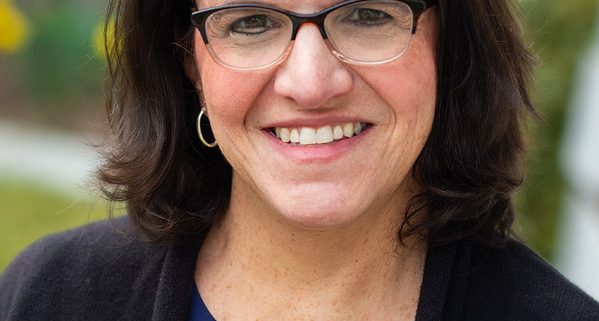Spotlight on Flex – Rachel Janger
Our Spotlight on Flex showcases professionals from member organizations who exemplify personal and professional success while working a flexible schedule. Their stories illustrate the long-term benefits that flexible schedules offer to both individuals and organizations.
March 2021 Spotlight on Flex
For our March Spotlight on Flex, we’re pleased to highlight Rachel Janger, Senior Counsel, O’Melveny.
Diversity & Flexibility Alliance: How have you made flexibility a priority and a success with your schedule? How has the firm and/or clients contributed to this?

Rachel Janger: I began working at O’Melveny in 1999 after my post-law school clerkship. I was full-time until 2007 when I had my second child and then transitioned to a 75% reduced hour schedule. A few years later in 2010, I requested a leave of absence to stay home with my kids. The firm agreed to my request. Once my older child was in elementary school, I asked if I could return to O’Melveny at an even further reduced-hours schedule. At that time, I believe this type of request was very rare in the industry, but it was helpful that I have a particular expertise in my area of law. O’Melveny was very accommodating and has always supported my reduced-hour schedule.
My reduced-hour arrangement works because I don’t take on more work than I am capable of fitting into my schedule but I also make sure that I’m available for our clients and colleagues when they need me. So, I work every day but I have more flexibility during my day. My guess is that some of my clients may not know that I’m on a reduced-hour schedule because I make my schedule work for them.
DFA: How has working flexibly made your career more sustainable and contributed to business development opportunities?
RJ: Reducing my hours helped me manage all of my responsibilities. Of course, not every day is a perfect balance. But my career is more sustainable for me because I’m able to focus both on my career and the rest of my life. I was room parent every year my kids were in elementary school, have been actively involved at my synagogue, and have spent more hours than I can count at school and sports events with my husband, all the while working on high-profile litigation and other significant matters for the Firm’s clients. My flexible schedule allows me to write articles, speak at various forums and ABA meetings and work on business development projects. I’ve also been able to participate in summer associate recruiting at my alma mater NYU.
DFA: Looking back, would you do anything differently, or what would you tell your first-year associate self?
RJ: My path has been interesting in that when I came back in 2012 at a significantly reduced-hour schedule, I was able to work from home a few days a week. While extremely unusual to work remotely as often as I did at the time, this type of flexibility was so helpful for me.
I would tell my first-year self, “Don’t be afraid to ask for what you want.” The things I asked for (the ability to work from home at a significantly reduced-hour rate) were all things I didn’t know I was allowed to ask for a few years earlier. The firm was very supportive and accommodating. Flexibility can be what you want it to be. If you have an idea of a way to make it work for both you and the firm, don’t be afraid to ask for it.
DFA: How do you recharge, and how do you pay it forward?
RJ: I think mentoring is probably one of the most important parts of my job and I have not let that slide in any respect since I’ve been part-time. I feel that it’s really important that more junior attorneys understand that when they’re dealing with stress and personal issues they have someone who will listen and help them through it.
I have spoken with junior attorneys about options available to them related to flexible schedules and their careers. It’s critical that women of my generation who have opted for part-time work pay it forward by helping junior attorneys who want to take a different path do so successfully. I want them to know that you can be seen as an integral part of the firm even when you’re part-time.
DFA: Has the pandemic impacted your flexible working schedule?
RJ: Like most people, my schedule has been somewhat more difficult to manage during the pandemic due to everyone being at home. Working from home used to be my quiet time, but right now I have two teenagers at home doing Zoom school, along with my husband and dog, and I find myself jumping back and forth more often during the day between work and life. What I liked about my schedule before was that I had the opportunity to go to the office, dress professionally, and see my friends and colleagues. I look forward to the day when we can all go back to the office a few days a week.
I do think boundaries are hard right now. Because we are all working from home now due to the pandemic, there are a lot more calls and work expectations that go into the evenings and weekends because schedules have blurred. But the transition has been easy in some ways. We have an amazing IT team and a lot of people were already starting to work from home more often before the pandemic. I have been very impressed with how supportive the firm and the IT team have been in the transition to everyone working from home.
— — —
If you are a professional working a flexible schedule and would like to share your story in an upcoming Spotlight on Flex, contact Jane Caldeira.







